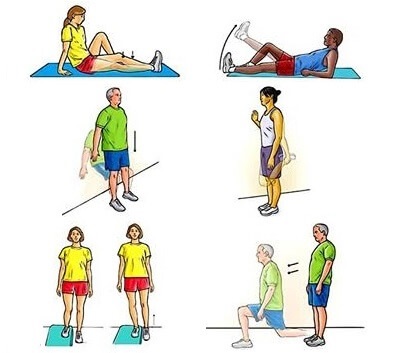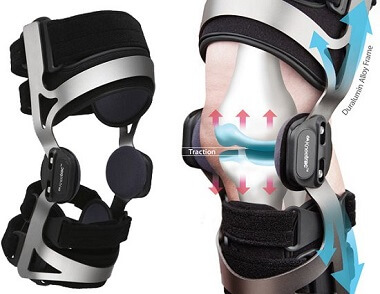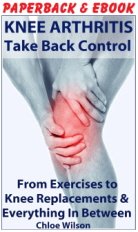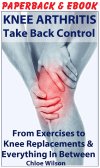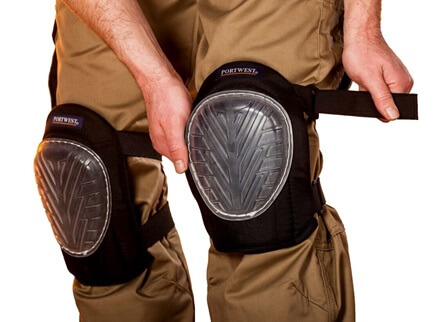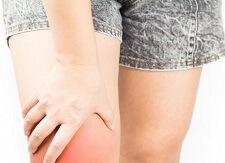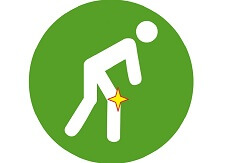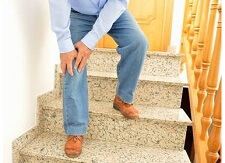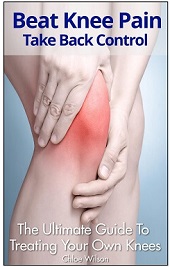- Home
- Knee Arthritis
- Treatment
Knee Arthritis Treatment
Written By: Chloe Wilson, BSc(Hons) Physiotherapy
Reviewed by: KPE Medical Review Board
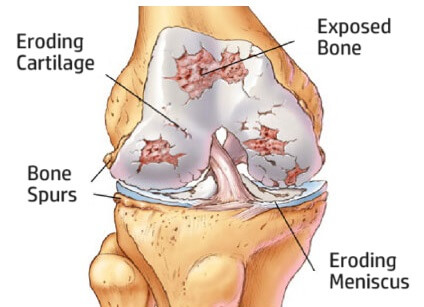
Knee arthritis treatment aims to reduce pain, increase function, stop the progression of the disease, and may abolish arthritis knee pain altogether. There are lots of different options out there.
Arthritis occurs when there is "wear and tear" in the cartilage lining the knee joint leading to bone rubbing on bone. This causes pain, stiffness and inflammation.
It is important to remember that there is no cure for arthritis, the changes in the bone and cartilage cannot be undone. But the effect of those changes can be minimised.
Here you will find information on the best knee arthritis treatment options. We will start with general treatments you can do at home, then look at medication and finish with the most common options for surgery.
Top 15 Knee Arthritis Treatments
The goal of knee arthritis treatment is to enable you to manage your symptoms so you can get on with your life. By reducing pain and swelling, and improving the strength and mobility of your knee, you can improve your day to day life.
The best treatments for knee arthritis are:
1. Knee Arthritis Exercises
Once upon a time people were told that exercise made arthritis worse. Nothing could be further from the truth. Studies have consistently shown that one of the best knee arthritis treatment options is exercise.
By strengthening up the muscles that surround the knee, less force goes through the arthritic bones which reduces pain.
Ideally you want a combination of aerobic exercises like swimming and cycling combined with strengthening and movement exercises when treating arthritis:
- Strengthening Exercises: Stronger muscles means more support for the knee and therefore less force through the bones resulting in less pain
- Mobility Exercises: when the knee starts getting stiff and the muscles get tight, it can change the way forces go through the knee and can put extra pressure on the cartilage and bones. Walking on a leg that doesn't fully straighten, even just by a few degrees, is much harder work so it is important to keep your knee as flexible as possible.
If you are a keen runner and suffer from arthritis, it's best to avoid hard running surfaces like pavements. Instead opt for a treadmill, cross trainer, or grass. Use the links above to find arthritis exercise programmes that can help as part of your knee arthritis treatment.
2. Knee Arthritis Braces
Another popular knee arthritis treatment is to use a knee brace.
Arthritis knee braces can be worn to help stabilize and support the knee and reduce the pressure going through the joint. They are really good if the knee is feeling weak and wobbly with arthritis. There are lots of different types of arthritis braces available.
The most high-tech knee arthritis braces redistribute forces away from the part of the knee affected by the arthritis, which can dramatically reduce pain. Others provide more general support.
In the arthritis knee brace section, you can find out all about the different styles, how different arthritis knee braces work and read user reviews, all to help you choose the best one for you.
Arthritis braces should not be used as the sole treatment but in combination with other knee arthritis treatment options to get the best results.
3. Heat and Ice
Many people find that using ice or heat as part of their knee arthritis treatment really helps.
- Heat: warmth
to an arthritic joint from a heat pack can be very soothing and is a lovely, natural knee arthritis treatment. The heat sensation helps to block out the pain and also helps increase blood flow to the area. This brings in all the chemicals and nutrients that the joint needs
whilst at the same time taking away the waste products that can be irritating the joint and
contributing to the pain.
- Ice: ice can be a really useful knee arthritis treatment tool to help reduce pain and swelling. Ice packs help reduce swelling which can decrease pressure in the knee joint. You can get special knee ice wraps to apply or use ice cubes/crushed ice or frozen veg wrapped in a towel. Do not use for more than 15 minutes at a time and leave 2 hours before reapplying.
To find out how to safely and effectively use ice, visit the ice treatment section or visit the Ice Wraps section to find out about the best ways to apply ice, such as ice bags, instant ice packs or cryocuffs.
NB Don’t use ice or heat if you have circulatory problems or high blood pressure, and don’t place ice directly on your skin – use a thin cloth to prevent an ice burn.
4. Natural Arthritis Remedies
Natural remedies are becoming an increasingly popular knee arthritis treatment option. There is more and more research being done into their effectiveness and many people swear by them.
There are a whole range of options including:
- Supplements: such as glucosamine and chondroitin
- Homeopathy: natural products such as ASU and Feverfew
- Alternative medicine: such as magnets, copper bracelets, creams and gels.
You can find out all about how these different products work, the pros and cons of each and the possible side effects in the Arthritis Natural Remedy section or use the links above.
5. Keep Moving
Check Out Our Book
All the info you need about knee arthritis, top tips, exercises & loads more.
Rated 4.4/5
Find Out More
Our joints need movement. The knee joint is surrounded by a bag like structure, known as the joint capsule, which contains fluid which works to lubricate the joint – think of it like the oil in your car which keeps everything moving smoothly. The fluid is pumped into the joint with movement of the knee.
However, if the knee remains in one position for too long, the fluid starts to “dry out” and the knee loses some of its lubrication. This is why when you go to get up after sitting down for a while the knee feels stiff and sore, but then loosens up after a few minutes e.g. when watching telly or when you first wake up in the morning.
So if possible, try and avoid staying still for long periods. Every twenty minutes or so, do some simple exercises like bending and straightening your leg.
Visit the arthritis movement exercises section for more information on this simple knee arthritis treatment tool.
6. Acupuncture
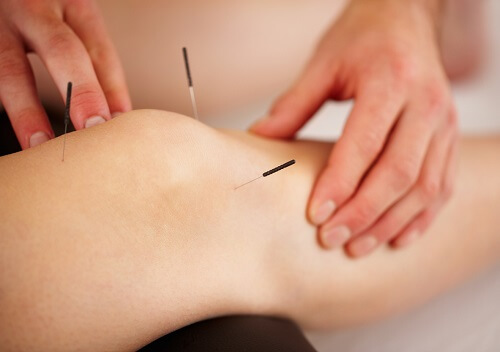
There have been a number of studies which show that acupuncture can be a really useful arthritis knee treatment option. Acupuncture helps to block pain signals going from the knee to the brain, like shutting a gate, and increases the blood flow to the area which helps promote healing and healthy joint function.
I have definitely had success using acupuncture with clients myself. However, I personally believe that acupuncture is most useful as a short term knee arthritis treatment to help relieve pain to enable you to do exercises to build up the strength and flexibility of your muscles as the long term solution. It should be used as part of a knee arthritis treatment plan, not on its own.
7. Weight Loss & Diet
Research has shown us that reducing body weight by 5-10% can considerably reduce arthritis knee pain. It can also improve your ability to carry out exercise.
Weight loss is only recommended as part of knee arthritis treatment if you are overweight so always consult your doctor before using weight loss as a knee arthritis treatment option. You can find out how much weight you might need to lose with these body mass index charts.
There are also certain foods that it is worth avoiding with knee arthritis as well as some that can help. By making good arthritis food choices, you can help reduce inflammation which can significantly reduce arthritis knee pain. Visit the diet for arthritis section to find out more.
8. Walking Aids
Sometimes people with knee arthritis find it helpful
to use a stick or crutches. Crutches can be used to reduce
how much weight is going through the knee when we walk. A stick doesn’t really take any weight off
the joint but it does help us to balance.
If you are using just one stick or crutch, always use it on the opposite side to where the pain is e.g. if it's your left knee that is sore, hold the stick in your right hand.
The reason for this is that when we walk normally we swing our opposite arm with our opposite leg (think of the army marching). This is the most efficient way for our body to move, so we want to mimic that when using a walking aid.
Find out more about how to use walking aids with arthritis along with our top tips on how to go up and down stairs with them.
9. Gel Knee Pads
People with knee arthritis often have difficulty kneeling down which can limit activities such as gardening. Wearing Gel knee pads can be a useful knee arthritis treatment tool.
They make kneeling much more comfortable by providing a soft cushioned surface to kneel on as well as reducing the pressure through the knee.
They also help spread out the force going through the knee, rather than it all going through one point, taking pressure off any bone spurs or areas of wear and tear.
In the gel knee pads section you can find out all about the most popular types of gel knee pads, read user reviews and find the best ones for you.
10. Pacing Your Activities
One of the key thing with knee arthritis pain is to pace your activities through the day – don’t try and do all the strenuous jobs at once. Alternate between physical activities and more gentle ones.
Keep using your knee, but rest when it becomes painful. Otherwise you can end up in a boom and bust cycle where when you feel good you do loads but pay for it the next day.
Little and often works so much better. This is a very simple knee arthritis treatment option, but can be very effective.
11. Footwear
Wearing shoes with low heels and soft cushioned soles can really help with knee arthritis. High heeled shoes change the way the forces act on the knee putting increased pressure on the knee joint, so avoid! Cushioned soles will help reduce the forces going through the knee by acting as shock absorbers.
Insoles can be helpful if you have problems with your foot arches - having flat feet increases the pressure through the inner side of the knee. Foot position can often be corrected by wearing specially designed insoles in your shoes, known as foot orthotics.
12. Tips For The Stairs
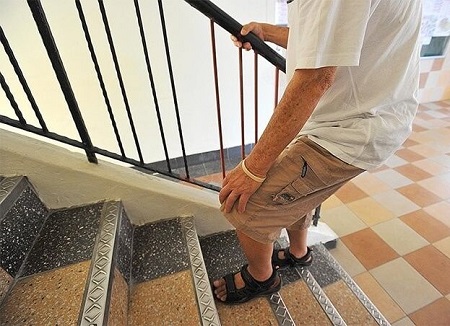
Arthritis sufferers often complain of weakness, difficulty or pain when going up and down the stairs.
It can get to the point that people limit how often they go up and down or in extreme cases end up sleeping down stairs.
But there are some really simple things that you can do to make it much easier getting up and down such as changing which leg goes up and down first, how best to use a stick or crutches to help and lots of other little tricks.
Check out this article on How To Do Stairs With Knee Pain for our top 10 tips. This is a really simple knee arthritis treatment but it can make a big difference in day to day life.
13. Medication for Arthritis
Medication can be a really useful part of knee arthritis treatment. This may be over-the-counter treatment or prescription medications:
- Pain Relief: If arthritis pain is bothering you, then talk to your doctor about what pain-relief would suit you best. It may be that a simple over the counter medication such as paracetamol is sufficient, but you may need something stronger
- Anti-Inflammatories: The ones most commonly used for knee arthritis treatment are Non-Steroidal Anti-Inflammatory Drugs (NSAID). Some are available over the counter e.g. ibuprofen and stronger ones are available on prescription. NSAIDs work by reducing swelling and pain.
I know a lot of people don’t like taking pills but they can be really useful. It is generally much better to take medication in the short term so that you can do your arthritis exercise programme than it is to battle through pain while your knee gets weaker and more painful.
Appropriate medication is one of the most important knee arthritis treatment options available.
14. Knee Injections
There are two types of injections that can be used for knee arthritis treatment:
- Corticosteroid Injections: a mixture of local
anaesthetic and steroid that is injected into the joint to help decrease pain and swelling
- Joint Lubricant Injections: such as synvisc, involve injecting a natural gel-like substance found in normal joints into the knee to help lubricate it
These knee arthritis treatment injections are often carried out by your own doctor. Whilst they won't cure your arthritis, they may relieve pain for up to 6 months. You can find out loads more about how they work and the pros and cons using the links above.
15. Knee Arthritis Surgery
Often, conservative knee arthritis treatment is enough to manage the symptoms and progression of arthritis. However, sometimes the pain becomes too debilitating and knee arthritis surgery is advised.
The most common surgery performed for arthritis is a joint replacement. If the arthritis is confined to one side of the joint, then a partial knee replacement can be performed which preserves the knee ligaments. But if the arthritis is more widespread, then a total knee replacement is required.
You can find out all about what happens during knee replacement surgery, the recovery and rehab process and how to get the best results in the knee replacement surgery section.
What Else Can Help?
Check out these articles to find out even more about all the different aspects of knee arthritis:
- Arthritis Overview: Introduction to Arthritis
- Causes of OA: The most common causes of arthritis
- Symptoms & Diagnosis: The symptoms of OA and how is it diagnosed
- Stages of OA: How the disease progresses
- Diet For Arthritis: Which foods to avoid and which foods can help
- Natural Arthritis Remedies: including supplements and homeopathy
- Knee Replacements: Replacing an arthritic knee with a new one
- Arthritis Book: Everything you need to know now in a handy book
SAFETY ADVICE: Remember to always consult your doctor before taking any medication as there are some side effects and contraindications associated with certain drugs. Always discuss any new knee arthritis treatment with your doctor first to make sure it is appropriate for you.
Related Articles
Last Updated: May 21st, 2025
Next Review Due: May 21st, 2027
